If you often feel anxious and embarrassed, this guide is for you. It will give you the tools you need to be more relaxed in social settings, get out of your head and into the conversation.
This guide is for anyone who’s feeling overly self-aware, but examples are geared toward adults in work or at college.
Note: Sometimes, the underlying reason for self-consciousness is social anxiety. If this is the case for you, here’s our list of the best books on social anxiety.
Let’s get started!
1. Focus on someone or something
Self-consciousness comes from being overly concerned with how people see us. We worry that we won’t be seen as smart, attractive, or that others are judging us.
It can be exhausting, and with too little evidence to support the argument in either direction, we go straight to the most negative conclusion.
To get out of this pessimistic mindset, try shifting your attention to the people around you and your environment.
Focus not on what others think of you but on learning about the people you’re with. Make it a point to find out one thing about every person you meet. It could be their job, their major, or what they did on the weekend.
The objective is to get out of your head. Put that energy into the people around you rather than into feeding an inner dialogue that’s holding you back.
2. Question your inner critical voice
It’s easy to believe the negative voice inside our head is always right. But have you tried questioning it? You might find out that it has little to do with what’s real.
Check the evidence from your life:
Can you recall a time you did something that proves your inner critic wrong? For example, if your voice says, “I always mess up around people,” remind yourself of a time when you did just fine.
Ask yourself if what you are feeling is reasonable. Or, are you letting a perception you think others have of you, run the story in your head?
3. Know that people notice you less than you think
In an experiment, students were asked to wear an embarrassing t-shirt.
By the end of the day, the students who wore the shirts estimated that 46% of the class had noticed. When polled, only 23% of their mates actually had.[1] In other words, their embarrassing t-shirt was only half as noticeable as they had thought.
What feels mortifying to us is usually having little to no impact on others. People are caught up in their own thoughts and struggles, too busy to worry about ours. The best thing we can do is remind ourselves that no one cares as much as we do, and even our own filter is not a perfect lens.
4. Know that it’s OK to say some stupid things
I remember talking to a girl I was crushing on when I was in high school. She was talking about how her brother liked a band, and like a crazy person, I said, “Ya, I know.” Like somehow, I knew what group her brother liked. My crush looked at me strangely but kept going.
Did it make any difference to my crush? Not really. At this point, I can laugh about it, but at the time it felt humiliating.
Try turning the tables on the situation. Would you care if someone blurted out something silly? Or would it just pass you by without giving it extra thought? It’s better to talk freely even if you say something stupid every once in a while. The alternative is to always guard yourself, and that can make you come off as stiff and aloof.
5. Don’t try to fight your feelings
Emotions tend to cling harder when we fight them and weaken when we accept them.[2]
When you are anxious, and feeling uncomfortable in a social setting, what are you thinking about? How does thinking about that make you feel? Happy, sad, nervous, jealous? What’s your body doing when you’re in your head and feeling awkward at a party? Are you sweating, jumpy, yawning a lot (a reaction to nerves)?
Simply accept how you feel rather than trying to change it.
Now focus outward. Talk to someone. Ask them how they’re doing. What brings them to this party/event? Do they know anyone? Then check your head. How do you feel when you’re talking to someone? Do you get any less nervous as the conversation goes on? If you were blushing, has it subsided yet?
Practice going back and forth between your inner thoughts and how you feel when you are talking to others. See if you feel better when you’re in your head, listening to your internal dialogue, or when you’re spending your energy on others.
6. Focus on your positive traits
This isn’t “think happy thoughts, and you’ll be fine.” Instead, you want to base your self-worth on your real, positive qualities rather than cynical and questionable self-talk. This is what we know is true:
- You have talents and abilities that give you fundamental value.
- This combination of characteristics makes you unique and memorable.
- You are worth spending time with and knowing.
Try to list your concrete skills like your mathematical ability, you’re a good writer, you’re multilingual, you’re a great cook. Then there are your personality traits. You’re kind, honest, genuine, funny, enthusiastic, etc.
Even if you can’t make a full list today, write one positive quality down every day and then review the list every week. When you have a comprehensive list, read it every day. You’re training your mind to focus on what you do well and to be able to access it quickly.
7. Make sure you’re reading the situation right
Negative experiences can teach us to be on guard and defend ourselves from criticism and hurt. This can affect how we perceive the world and the people we encounter.
Those of us who are overly self-conscious might believe the world will judge us harshly because that is what we’ve experienced. However, as I’ve pointed out, people don’t care that much about how we act or what we say. Every new person you meet thinks of you as a blank slate.
When you’re in a scary social situation, ask yourself, “Is there a chance my past experience is affecting how I’m seeing this interaction? Is there another, more realistic way I can approach his conversation?”
Believe people will be friendly, and most of the time, they will be. If not, it says more about them than you.
8. See yourself as a social observer
People watching is fascinating, and it shows us how our basic humanity makes us all messy, foolish, and funny. Go to the mall, grab a coffee/tea, and watch people walk with their friends. Listen in as they sit beside you and talk, or as they chase their kids down the hall.
Now notice their body language, their tone of voice, and eavesdrop on what they’re saying. What we’re doing is training you to switch your focus from yourself to others and to think objectively about what you’re witnessing.
Are people relaxed or stilted? Is their posture good, or are they slouching? When they talk, are they quiet, or does the volume go up and down with excitement? The more we see others being their imperfect selves, the more we’ll realize this is what ‘normal’ looks like.
Go into this observer mode when you walk into a room of strangers. It can help you be less self-conscious.
9. Assume that people will like you
This one is about the mechanics of being seen as confident rather than inhibited or self-conscious. When we feel uncomfortable, it can make us talk softer, hug our bodies with our arms, and speak faster to get the words out and move the focus off us as soon as possible. It can make us seem aloof, and even if we don’t intend to, it makes us less approachable.
Be confident and friendly right off the bat. Walk up to people with a warm smile and present yourself. If you’re uncertain about the details, look at how likable, confident people do it and learn from them. Assuming people will like you is a self-fulfilling prophecy. Assuming they won’t is, too.
10. Ask about others to take the focus off you
It’s easier to focus on someone else other than ourselves. When you meet someone for the first time, ask them what they do for fun. What are their hobbies, or do they have any pets? Listen carefully, nod, and give them signs that you are enjoying their story. Then add anything relevant that applies from your life. Things like your pets – what kind are they, their name, breed…or your hobbies. At the end of the day, you want to have a balance between learning about them and sharing about yourself.
The goal is to learn about someone else because it’s hard to be self-conscious when you’re focused on getting to know another’s interests and stories.
11. Make internal progress checks, not comparisons
Jealousy is a miserable emotion. It makes you feel small and worthless and sucks the joy out of everything. It’s like anger directed at someone else, but you are the one who feels crappy.
Avoid both overexaggerating someone else’s talents or trying to find flaws in them to make yourself feel better. No one is perfect, and tearing them down when you feel envious just retains the focus on you because you are still comparing yourself to someone else.
Here’s a thought: What if we were OK with the fact that someone is more accomplished than us? When we accept this, it helps us see ourselves differently.
Our value then has nothing to do with how successful we are or how good we are at something. We want to go from “I like myself because I’m good at…” to “I like myself.” (Period.) This makes our self-acceptance unconditional.
How do we accept that others are more accomplished than us and be OK with that? First, let that fact sink in, and allow all your emotions of envy and sadness to come to you. Accept those emotions rather than fight them. Now, you no longer need to fear them. Afterward, you will be less prone to comparisons.
Here’s another way to do it:
Instead of thinking, “Well, at least I’m better than them when it comes to X.” Say, “I’m not good at everything, which is OK because my value isn’t based on my achievements. I have value because I am 100% myself”.
Let’s talk more about how to be more self-accepting…
12. Practice accepting yourself
Self-acceptance is one of the biggest steps we take towards achieving self-confidence.
According to Aaron Karmin, MA, LCPC, a psychotherapist in Chicago, Ill, a person “who accepts [themselves] unconditionally as a worthwhile human in spite of [their] faults and imperfections does not experience the stress of self-consciousness.”.[3]
Here are some things you can do to accept yourself:
- Decide how you are going to live your life. Will you let others define your personal image, your strengths, and your weaknesses? Try to move from blame, doubt, and shame to tolerance, acceptance, and trust.
- Make a list of all your good points.
- What do you do well?
- What are you proud of accomplishing?
- Whose lives have you made better?
- Connections you’ve made with others.
- Hardships you have overcome.
Review the list often, so you see your progress and acknowledge your gifts.
- Take an inventory of the people close to you.
- Are they good for you?
- Do they reinforce negative self-talk?
- Do they criticize or demean you?
Consider eliminating all the negative influences in your life.
- Surround yourself with a positive support group of people who celebrate you.
- Forgive yourself. If you made a mistake, realize you did your best with the information you had at the time, or you simply made a bad choice. But now you chose to move on and forgive yourself.
- Silence your inner critic. Just because it’s hard to hear doesn’t mean it’s right or 100% true. If you wouldn’t talk to someone else like you speak to yourself, why is it OK to do it to you? You’re human like everyone else. Treat yourself as well as you treat anyone else, if not better.
- Move on from your unrealized dreams. You can’t change the past. All you can do is move forward and continue to pursue your current goals.
- Help yourself see how you make others’ lives better. It’s harder to see yourself in a harsh light when you acknowledge all the good you do.
- Let it go – You can’t control everything. It’s not resignation. It’s a realization that your energy is better spent elsewhere instead of railing against the things you can’t change.
- Try to solve your problems one at a time. First, step outside your head where all the worry and self-doubt resides. Take a dispassionate look at what you need to do to move past each issue. You could even try imagining that the problems you’re facing are someone else’s (if that helps you get away from your internal thoughts). Ask yourself what advice you’d give them (yourself) to help?
- Practice Self-compassion – accept your flaws and love yourself anyway. Simple words, but for most of us, it takes years, if not a lifetime to master this step. The more you do it, the better you’ll get in every respect.
- Even though you may not have much experience being kind and compassionate with yourself, you will start to believe these good things you’re telling yourself. Especially if you keep this positive internal monologue up. In many instances, it took years to get to this place of insecurity. It will likely take weeks and months to see progress and make permanent changes to your mental habits.
13. Practice thinking about other’s needs
Try doing thoughtful things for others. Consider their struggles, worries, dreams or regrets. When you do, you take the focus off yourself and you’ll connect with them. This will help you be less self-conscious.[4] It will also show others that you are caring, and you value them. Done selflessly, it will bring good things back to you.
Here are some suggestions:
- Smiling at someone after you meet them. It could be a friend, family member, or acquaintance. Let the smile happen as you talk to them, so they know you are smiling just for them because it grows after you say, ‘Hi.’
- Hold a door for someone.
- Give a spontaneous compliment.
- Bring a friend or co-worker cookies or a pre-made dinner if they are sick or need a pick-me-up.
- Pay it forward. Pay for the coffee or drive-thru meal of the people behind you.
- Keep your area tidy and organized if you work in an open-concept office.
- Send cards for different occasions or for no occasion at all.
- Give someone 100% of your attention and note what they say so you can follow up later. (Ask them how ‘it’ went. Make sure they are OK afterward.)
- Consciously spend a few minutes every day thinking of the things you are grateful for.
A word of caution: Do not do these things to gain others’ approval. That puts the focus back on you. Do it out of sincere consideration for others. The purpose of the exercise is to focus on others and their well-being. When you do, you’ll become more compassionate and less self-conscious.
14. Consider talking to a Therapist
If your self-consciousness is inhibiting you or is a result of social anxiety, a therapist can be helpful. Having social anxiety is more common than we think, and deciding to understand and address the effect it has on your life is brave. A Psychologist or a Therapist will help you talk through your feelings, find out where they originate from, and give you the tools to unpack them and move forward.
We recommend BetterHelp for online therapy, since they offer unlimited messaging and a weekly session, and are cheaper than going to a therapist's office.
Their plans start at $64 per week. If you use this link, you get 20% off your first month at BetterHelp + a $50 coupon valid for any SocialSelf course: Click here to learn more about BetterHelp.
(To receive your $50 SocialSelf coupon, sign up with our link. Then, email BetterHelp’s order confirmation to us to receive your personal code. You can use this code for any of our courses.)
You can also try contacting your insurance company or doctor for recommendations.
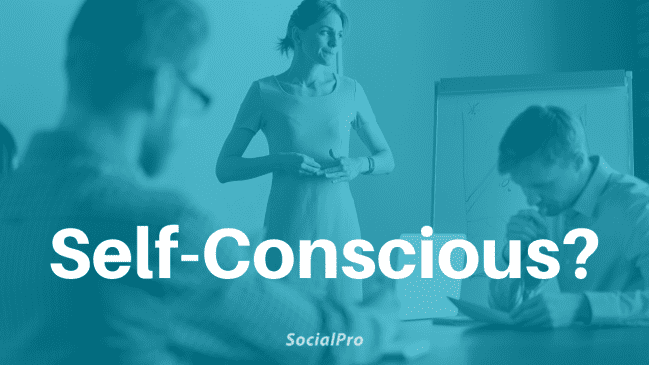





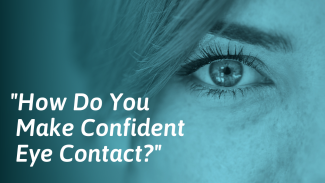

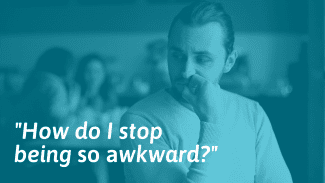

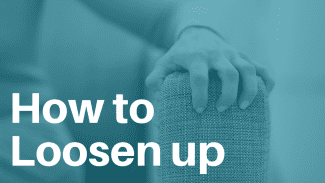
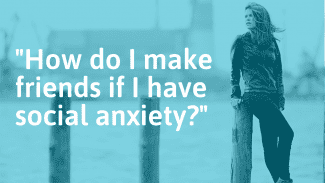
Not sounding smart or fun to be around when talking to people.
I always worry that people are judging how I look. My clothes, my teeth, my hair. I worry that people are embarrassed to be seen with me. I worry about having nothing interesting to say. I get so down on myself that I haven’t seen my friends in over 5 years. It’s been so long since I’ve had a close friend or socialized that I’m not sure I know how to anymore.
I’m worried about being boring. I don’t want to say the wrong things and be laughed at or embarrassed, so I stay quiet. I end up overthinking to the point I don’t actually say anything. Self fulfilling prophecy type thing.
Same here
Recently I’ve become comfortable with my own quietness and am not bothered with silences or people not talking to me. Then again, I am starting to be afraid of missing out on things other people are doing, like forming relationships and having a fun time together. I ask myself, am I just being myself when I am quiet, or is it anxiety that is holding me back from knowing what to say, and actually saying it.
I relate to this so much. Thank you for sharing.
Same, dude, same
I’m afraid that I might not be able to understand what the other person is saying and not being able to answer his/her question because I don’t have confidence in my vocabulary words. I’m afraid of not sounding smart enough. I’m afraid of people’s attention everytime the spotlight is on me, meaning, when it’s my turn to talk when in a group meeting/social gathering. I’m insecured how well they speak, wishing, that I could at least have their 10% of confidence. I’m afraid that my words will fail me.
My fear essentially boils down to not being good enough, funny enough, interesting enough etc… whenever I talk to new people or try to socialize with strangers it initially goes well but I hold back because I fear being judged I guess. I forget how to be funny, witty and I close myself off… often find myself wondering how I’m supposed to behave even though I know I’m capable… result is that the concetsation dies down and the interaction usually never goes past that initial greeting
I get overly conscious about what people think about me. Whenever I have to talk with a new person I get so nervous that I forget the language itself and make grammatical mistakes and forget words when in reality I am good at that particular language. Also I cannot have a conversation with anybody with overthinking about it later on and then hating myself for what I said. I have the strong fear of being judged and it often leads me to fake myself in front of people. It just makes people hate me more and lose friends.
Wow!!! I thought I posted this as I have the exact same fear.
I sometimes feel like the most boring person on the planet. When I’m not with a few friends of mine who gets me I’m so awkward… I’m totally unable to start a conversation.. It’s like I have nothing to say. And it usually freaks me out so much that I end up not talking at all…Nobody ever comes to talk to me and when they do, the conversation dies after few minutes, so the next time they rather talk to someone else..I feel so hopeless like there’s something deeply wrong with me…
I do feel the same the way.
I am afraid of being judged and/or deemed not good enough to be with the person I am with.
I’m afraid that people might think i’m dumb. When i’m with people i feel so small and my mind goes blank, i don’ know what to say and if i think of something it always sounds so forced. i feel that my personality is awful and they’ll get quickly bored, it’s like i’m wasting their time
I’m always the quiet guy, sure I can contribute to a conversation but I won’t start one. I’ve always had this fear of being judged for how interactive I was in a conversation, and as I listen to my friends speak I just wish I could talk more and contribute more to a conversation. And the more I think about it the less I want to say anything. I also struggle with being embarrassed, I’ve gone as far as skipping school to avoid a class presentation, I would tel my self I can do this but the closer the day of presenting cane the more anxious I got.
you are not alone i also have the same fear
Looks , that they’ll think I’m stupid and not as smart or educated
I am afraid of beeing judged for not getting well from my fatigue syndrom and for not beeing able to get back to work yet. I am also afraid of being judged for beeing shy and don’t beeing able to have a conversation with people I dont know at dinner parties. I usually end up sitting there with no one to talk to.
Hi how are you have a good weekend I am afraid of being judged for being shy being anxious and neverous all the time because I have high anxiety , autism , depression , and I think I have ptsd always stressed out 24-7
Im afraid of being judged on my weight, almost to the point I hate myself and I judge myself so it doesn’t hurt as much being judged by others. Or you know I’m worried someone might judge me for how I speak, some have literally called ignorant before because I didn’t know what they knew or talked like they talked. My life has always been a rollercoaster of emotions ranging from fear to outright rage because of my paranoia that others are talking about me… It’s gotten so bad as of lately it’s starting to ruin my relationship with my loving fiance.
Sometimes, I feel confident to face the spotlight but very soon my brain fade start and I am unable to speak anything.
Many a time I ponder over what to talk about even when talking with my family members(except my mother).
I hesitate a lot while expressing(due to filtering) my thoughts. It’s easy while writing because I can correct errors/ change the whole sentence-structure.
Did any of you ever just feel that you lost all interest in the people you get the chance to know?!
Like, there is a lot of people I could get to know, but I am not in to whomever wants to get to know me, just feel so distant from most people; in my work I take a real interest in my collegues and even feel like I would like to know them even more, but in private life it’s just ‘been there done that, not funny’….its weird.
iam more afraid of hurting people’s feelings than being judged.i have a fear of i might hurt someone unintentionally by saying something,i would always nod in agreement to make them feel appreciated.i would always silence myself even if people had bad things to say to me because i feel like its better that im hurt than they feel hurt.
I too feel this.
I feel the same way. It`s really hard to commute what i`m thinking and i get so nervous that i either just stop talking or just give up entirely and move on to an easier su
I fear that I will be judged for my way of speaking (especially English). As a result of which I end up stammering or speaking wrong words. Also, due to this I speak less or in other words I am unable to continue the conversation. I feel that maybe because of this people end the conversation with me.
Hey anonymous answer, whoever you are, I have the same feeling. I’m quite good at English but still my language skills (whichever language it is) seem to be less when I talk to people who I feel are very smart. Because the person whom I’m talking to might think I am bad at English or something.
I am afraid that people will think I am boring. When someone new tries to talk to me i always try to paraphrase what they said or agree with what they said and then I smile and nod. I don’t try to add on to the conversation. But the truth is, its because i’m shy. So when people finish the converstation with me and leave, I always think its because they thought I was boring which leads them to not wanting to talk to me anymore.
Am currently facing this too. Most times I feel like am losing out on attractive girls because am boring
I fear that people will think I’m weird or if I let them get too close, they will hurt me and then leave me. And I’m also afraid that because I have a larger body than lots of people my age, they won’t want to be associated with me.
I am afraid of being judged for my shyness and introvertness.It makes me think sometimes that the other people out there would not understand me or misinterprete my intentions.
Hello, thanks for your hard work <3
I recently started to realise that everytime i talk to people or even pass by them i have to compare between us, it's the only way i get confident. I think it's kind of an inferiority complex. I think that self-confidence should be persistent
And it is very draining too it’s making me hate myself and dread going outside!
Hi Alaa,
I feel the same way – when approaching a new person I usually assess them and compare against myself. And if comparison is in my favor I have no issue communicating with them, but if for whatever reason I decide that they’re better than me, I become distant and try to leave the situation ASAP.
I agree with you – Confidence is everything.
Good luck to you on this journey of self acceptance and mastering social skills!
I understand where you are. Recently, I’ve realized that everyone is just comparing themselves to each other. There is no one “better.” Everyone is feeling a lot of the same due to human nature. I realized that I don’t need to prove myself to anyone. If I’m just myself the right people will find me, and when talking to others, just think, they could be thinking the same and comparing themselves to you. You’re awesome. So is the person you’re talking to. Hopefully that can help put things into perspective a bit
Hello, David!
I’ve been reading alot of your articles these days and i can’t seem to stop haha.
You see, my voice is rather soft and quiet, the type that’s hard to hear/understand. It makes talking to people hard especially when they are talking loudly and excitedly and can’t hear me. Normal group conversations are sometimes hard too bc i need to repeat myself and people get tired of it and stop asking me to repeat and choose to ignore me instead. Even if i speak loudly it’s still hard to understand.
I’m getting better at making my voice level (during presentations) because once it cracks i think oh no they know I’m nervous over such a small thing.
I wish i knew what to do.
My age Im a senior. My race. I live in a very mixed race community and my language. I’m white Caucasian and only speak one language English and I feel like other people of other cultures who speak more than one languages speak in their foreign language are talking about me deliberately in another language drliberatey either about me or to shut me out right in front of me. I tried to talk to a woman in front of me in a check out line to ask her a question and when she saw me she froze me out. It hurt because I was taught as a young white girl never to be snobby or mean to others because of skin color or cultural differences. Sometimes I want to be around only people of my own culture and race because I experience so much rejection by people with more than one language who know how to speak English but deliberately speak something else so I shut down and ignore them and the possibility of friendships starting at a bus stop or grocery store not good. I have become a recluse who watches movies borrowed from the library with my cat as my social outlet.
I’ve always been a shy person but since I started high school it seemed to get worse. I am now in year 10 and I still get the feelings of fear and worry when I talk to certain people etc. I’m terrified of speaking to strangers and I’m still worried to speak to some people in my friendship group. Recently it has been a little better but thoughts always rush through my head when I’m talking to them, thinking of how stupid I sound or what should I say etc. I just want to be able to feel comfortable talking to most people, whether I know them or not and not feel anxious every time I walk into school.
I’m afraid of being judge because of my body and I know that I get judge every day, at school or at home. I just want to feel confident but I don’t know how. I never have a real boyfriend or relationship because they don’t really like me the way I’m and I have trust issues. I want to resolve all of this but I don’t know how
I’m afraid because of my uncommon upbringing, not having either parent raise me, that others, who may have had a more typical family dynamic, can see about me, and perhaps even that there are obvious things within my personality and the way I am that only they would be able to tell about. I feel embarrassment which often is coupled with shame because of this, especially when something doesn’t land correctly in a social setting.
When I talk, I feel as though I’m such an outsider that people won’t be able to talk to me, and that they’re judging me for being different.
It doesn’t matter that you’re different or not. See your differences as all the things that make you unique and those should make you proud